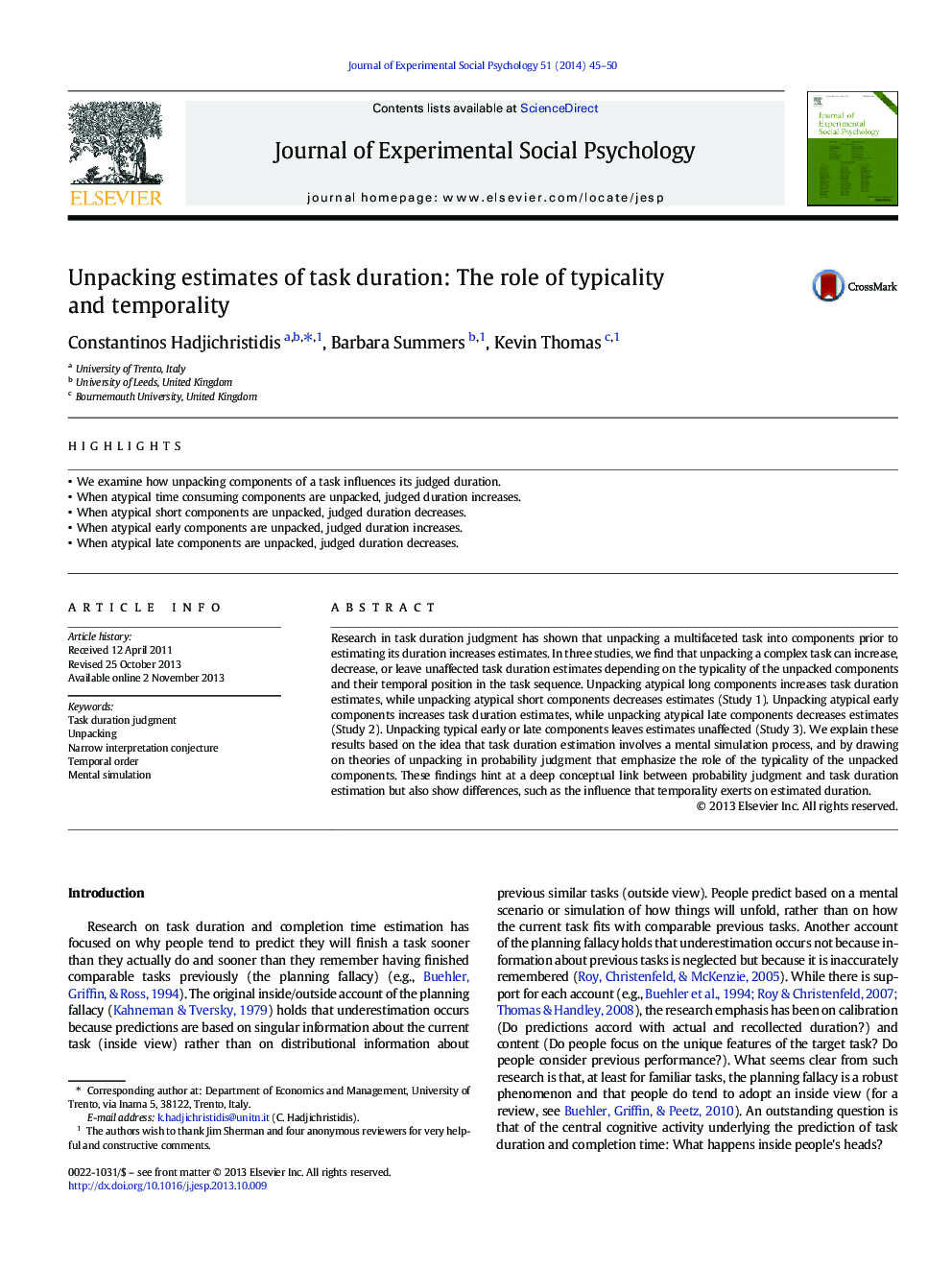| کد مقاله | کد نشریه | سال انتشار | مقاله انگلیسی | نسخه تمام متن |
|---|---|---|---|---|
| 947773 | 1475872 | 2014 | 6 صفحه PDF | دانلود رایگان |
• We examine how unpacking components of a task influences its judged duration.
• When atypical time consuming components are unpacked, judged duration increases.
• When atypical short components are unpacked, judged duration decreases.
• When atypical early components are unpacked, judged duration increases.
• When atypical late components are unpacked, judged duration decreases.
Research in task duration judgment has shown that unpacking a multifaceted task into components prior to estimating its duration increases estimates. In three studies, we find that unpacking a complex task can increase, decrease, or leave unaffected task duration estimates depending on the typicality of the unpacked components and their temporal position in the task sequence. Unpacking atypical long components increases task duration estimates, while unpacking atypical short components decreases estimates (Study 1). Unpacking atypical early components increases task duration estimates, while unpacking atypical late components decreases estimates (Study 2). Unpacking typical early or late components leaves estimates unaffected (Study 3). We explain these results based on the idea that task duration estimation involves a mental simulation process, and by drawing on theories of unpacking in probability judgment that emphasize the role of the typicality of the unpacked components. These findings hint at a deep conceptual link between probability judgment and task duration estimation but also show differences, such as the influence that temporality exerts on estimated duration.
Journal: Journal of Experimental Social Psychology - Volume 51, March 2014, Pages 45–50
